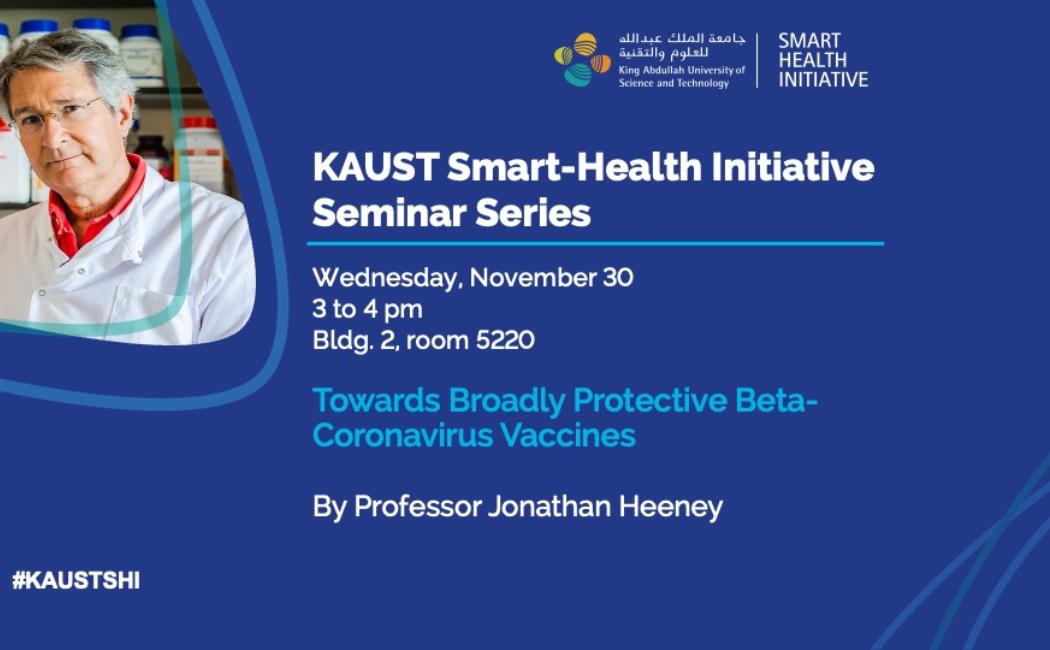
Towards Broadly Protective Beta-Coronavirus Vaccines
KAUST Smart-Health Initiative (KSHI) Seminar Series
Please join us for the first KAUST Smart-Health Initiative (KSHI) seminar of the new seminar series:
Towards Broadly Protective Beta-Coronavirus Vaccines
By Professor Jonathan Heeney, Department of Veterinary Medicine, University of Cambridge (UK)
Abstract
Vaccines that are now in use are based on vaccine antigens from isolates or sequences of infectious diseases that have occurred in the past. However, many pathogens, especially RNA viruses continuously evolve. This is evidenced by the successive waves of variants of SARS-CoV-2 and Influenza subtypes in animals and humans, requiring annual updates of seasonal influenza vaccines.
The COVID-19 pandemic witnessed an accelerated evolution of vaccine technologies to generate vaccines with a variety of different delivery systems such as mRNA and Adenoviral vectors that we amongst the first to be licenced for mass immunisation programmes by many countries around the world. However, they almost exclusively based on the first sequences Spike of SARS-CoV-2 that were made available in the first months of the pandemic. As new waves of variants arose the efficacy of those vaccines has steadily declined. The addition of bivalent versions of these vaccines have added Omicron sequences of variants that arose in the past year, again as new, different variants have already circulated globally.
This lecture will examine new convergent digital technologies that are utilised to develop a new generation of vaccine antigens that provide broad protection against multiple, divergent viruses. These vaccine antigens are designed in such a way that they can easily be combined with new vaccine delivery technologies that can be rapidly scaled and manufactured.
About the speaker
Professor Heeney qualified with Doctoral degrees in Veterinary Medicine, and Veterinary Pathology in Guelph Canada. Performed his PhD at the National Institutes of Health in the USA under the supervision of Stephen O’Brien before becoming a Fellow in Pathology at the Stanford School of Medicine. He received his Doctor of Science at Cambridge University, and in 2007 established the Lab of Viral Zoonotics (LVZ) in Cambridge which focusses on the cross-species transmission of viruses, their co-evolution in different hosts and the immune mechanisms of disease and disease protection. The LVZ applies the understanding of immune correlates of protection to develop vaccines to prevent the transmission of zoonotic infections at the animal human interface. Studies currently focus on RNA viruses such as Coronaviruses, Influenza and Haemorrhagic fever viruses. Translationally data on immune correlates of protection is applied to the rational design of next generation, broadly protective vaccines for the prevention of epidemics caused by continuously evolving RNA viruses. He is the PI of a CEPI funded consortium to develop Broadly Protective Beta-Coronavirus Vaccines for the prevention of the next pandemic.
